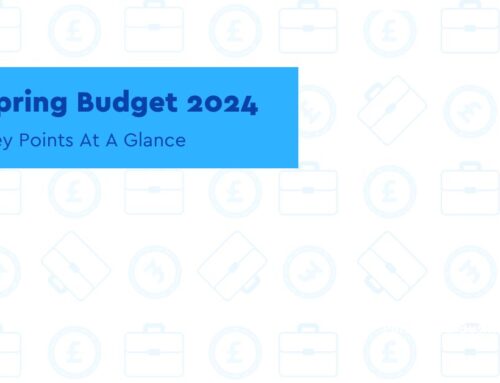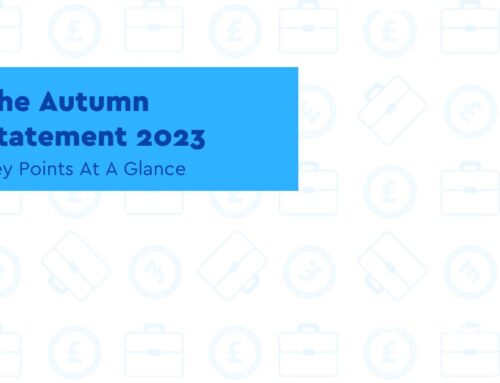Chancellor requests OBR economic forecast for late October
Key Points
- The forecast normally accompanies a Budget or Spending Review – but neither were announced
- It was reported that Rishi Sunak is considering delaying the Budget until the spring
Rishi Sunak has asked the Office for Budget Responsibility (OBR) to prepare an economic and fiscal forecast to be presented on October 27, 2021.
The forecast, however, normally accompanies a Budget or Spending Review by the Chancellor – but neither were announced.
A three-year spending review is planned for the autumn, for which a new OBR forecast is required. The OBR is required by law to publish two forecasts a year that can be released to parliament.
Whitehall departments have been told to find savings of 5 per cent but the formal process has been postponed until after the parliamentary recess.
Since 2017, annual Budgets are supposed to be scheduled for November or December so businesses have enough time to implement new tax rules before the next financial year begins the following April.
But in 2019 the Budget was delayed until the following March because of the general election in December. In 2020 too, the autumn Budget was pushed back to March 2021 because of the pandemic.
It was reported earlier in July that Rishi Sunak is considering delaying the Budget until the spring, as there will be a clearer picture of the UK’s economic outlook.
This is especially true at the present time as the furlough scheme is set to end, while inflation and tax breaks are on the horizon.
UK must improve export support scheme for SMEs
Key Points
- The FSB says there is an opportunity to seize a better export support scheme
- Plan includes increasing proportion of costs covered by grants to ensure best value for money
The Federation of Small Businesses (FSB) has laid out a five-point plan to help the government create a better export support scheme for small businesses.
The FSB is calling on the government to make vital improvements to the UK’s export support scheme.
It comes amid the recent closure of the government’s Tradeshow Access Programme (TAP) which the FSB argues was not “as good, or as good value, as it could have been”.
The scheme provided £500-£2,500 towards direct exhibiting costs, conference fees or creating promotional materials.
Now the FSB says there is an opportunity to seize a better export support scheme. The body has set out a five-point plan to help achieve this, particularly for regions and businesses where support is most likely to help them become first-time exporters or move into new markets.
- Help trade show access across the UK, particularly in areas like the north east and north west of England and the west midlands – these areas have the largest proportion of small firms considering exporting for the first time compared to those who already do.
- Expand support to costs such as conference entrance fees
- Increase proportion of costs covered by grants to ensure best value for money by increasing the additionality of the scheme
- Streamline administration of support so that more small firms find it easier to access and reducing the risk that only the larger SMEs will have the resources to access trade programmes
- Look beyond trade shows to make UK export more competitive with other international schemes
FSB national chair, Mike Cherry, said: “If our international competitors have better schemes than us, it is only right to look afresh at what more can be done to put ‘Made in the UK’ on other nation’s shelves.
“Ministers now have a chance to make the UK’s export support truly world class in a tough global race – we encourage them to take it.”
Taxpayers urged to check eligibility for the marriage allowance
Key Points
- Figures show around 1.8 million married couples are currently making use of the benefit.
- They can transfer 10% of their tax-free allowance to their partner, which is £1,260 in the 2021 to 2022 tax year
HMRC has reminded married couples and those in civil partnerships that they could reduce their income tax liability by up to £252 a year by sharing their personal allowances.
Figures from HMRC show around 1.8 million married couples and those in civil partnerships are making use of the benefit but many more could be eligible.
Recent changes in circumstances may mean that they are now eligible to make a claim or their eligibility has changed.
Marriage Allowance allows married couples or those in civil partnerships to share their personal tax allowances if one partner earns an income under their Personal Allowance threshold of £12,570 and the other is a basic rate taxpayer.
The personal allowance is the amount of income you don’t have to pay tax on so by transferring some of your allowance to your partner, they are able to earn more income tax-free.
They can transfer 10% of their tax-free allowance to their partner, which is £1,260 in the 2021 to 2022 tax year. It means couples can reduce the tax they pay by up to £252 a year. Couples can backdate their claims for any of the four previous tax years, which could be worth up to a total of £1,220.
If you’ve recently taken unpaid leave, changed employment due to Covid 19, or reduced your hours, you could now be eligible to claim the allowance.
You may also be entitled to it if you or your partner recently retired.
It is free to apply for the marriage allowance and you can check eligibility and make a claim here.
Married couples may have experienced a change in their circumstances which could now mean they are eligible for Marriage Allowance, including:
- A recent marriage or civil partnership
- One partner has retired and the other remains working
- A change in employment due to COVID-19
- A reduction in working hours which means their earnings fall below their Personal Allowance
- Unpaid leave or a career break, or
- One partner is studying or in education and not earning above their Personal Allowance
If a spouse or civil partner has died since April 5, 2017, the surviving person can still claim by contacting the Income Tax helpline.
Marriage Allowance claims are automatically renewed every year. However, couples should notify HMRC if their circumstances change.
Super-deduction extension will benefit property landlords
Key Points
- A property landlord incurring £1m of qualifying expenditure can save almost a quarter of a million pounds
- Expenditure needs to be incurred on or after April 1, 2021 but before April 1, 2023
First announced in March 2021 and set to run from April 1st 2021 for two years, the super-deduction allows any investments a business makes in ‘main rate plant and machinery’ to qualify for a 130% capital allowance deduction.
When the scheme was originally announced, property letting companies were excluded from the scheme, meaning only occupiers could claim.
The super-deduction would be available for expenditure on new plant and machinery which would otherwise qualify for the 18% main rate of capital allowances. A special rate first year allowance at 50% (the SR allowance) was also made available for expenditure that would otherwise have qualified for the special rate writing down allowance, such as integral features or long life assets.
However, the Government recently approved amendments at the report stage of the 2021 Finance Bill meaning that property landlords will now be able to take advantage of the 130% super-deduction for main pool assets and maintain their annual investment allowance (AIA) for special rate assets.
Under the new rules, a property landlord incurring £1m of qualifying expenditure can save almost a quarter of a million pounds on their corporate tax bill.
To qualify however, expenditure needs to be incurred – which means an unconditional obligation to pay has arisen – on or after April 1, 2021 but before April 1, 2023 on ‘new and unused’ plant and machinery.
Weekly HMRC, Gov’t and tax updates
Apprenticeship funding scheme unveiled
Businesses looking for workers can benefit from a new £7m fund to create “new, flexible” apprenticeships, the Government announced earlier this month.
A small number of agencies will set up new “flexi-job apprenticeships” to allow apprentices to work across several employers on a range of projects for at least a year. In sectors where flexible or project-based working are the norm, new flexi-job apprenticeship agencies will bridge the gap to help employers realise the benefits of apprenticeships for their business. Sector bodies, groups of employers and other interested organisations are invited to register as flexi-job apprenticeship agencies, giving them access to the £7m fund to support new agencies with their start-up costs
Sterling rises to new 18-month high vs euro
Sterling rose to a new 18-month high against the euro on Tuesday, as signs of economic recovery and falling COVID-19 rates spur expectations of a far earlier interest rate lift off compared to the euro zone.
Sterling has performed well in recent weeks as a fall in COVID-19 cases has allowed the British government to lift most social-distancing rules, while the Bank of England (BoE) last week flagged how it might gradually rein in stimulus.
British consumer spending rose strongly in July, data from Barclaycard showed, up 11.6% on pre-pandemic levels. Spending in shops too increased by 6.4% in July from year-ago levels, the British Retail Consortium said.
The Bank of England set to call time on pandemic stimulus
The Bank of England has called an end to its pandemic stimulus by declaring that “some modest tightening of monetary policy is likely to be necessary” after warning that inflation will peak at 4 per cent later this year, the highest level in a decade.
Under the Bank’s new forecasts, interest rates rise from 0.1 per cent to 0.2 per cent in 2022, an earlier increase than expected at other central banks, and to 0.5 per cent by August 2024.
The Bank expects GDP to return to pre-pandemic levels by the end of the year, growing by 5 per cent in the second quarter and by 3 per cent in the third, and for the lasting economic damage to be only 1 per cent of GDP, lower than the 1.25 per cent it predicted previously.
Capital gains tax receipts hit record high of £9.9bn in 2019/20
The amount of money HMRC collected from capital gains tax (CGT) receipts hit a record high in the tax year 2019/20, bringing in £9.94 billion, figures from HMRC show.
Receipts were £243 million higher than 2018/19 when £9.7bn was collected, and higher too than in 2017/18, when £9bn was collected.
The amount of taxpayers paying CGT dropped for the second year in a row, however, from 288,000 in 2017/18 to 265,000 in 2019/20, meaning people are paying more in CGT on average than in previous years.
Figures also show that most CGT payments came from a small number of taxpayers. In the 2019/20 tax year, 41% of tax came from those who made gains of £5m or more, a group representing less than 1% of taxpayers.
Get In Touch
At Morgan Reach, we understand every business needs a little help now and again-especially when it comes to the financial side of things. Therefore, to help our clients and visitors we endeavour to cover as much of the business news as possible. If you are self-employed or run a business and need assistance and advice on how these news could make a difference to you or your business, feel free to get in touch with the experts at Morgan Reach. Our business growth experts at Morgan Reach will guide you through what support is available for you or your business as well as the latest news that may affect you.







